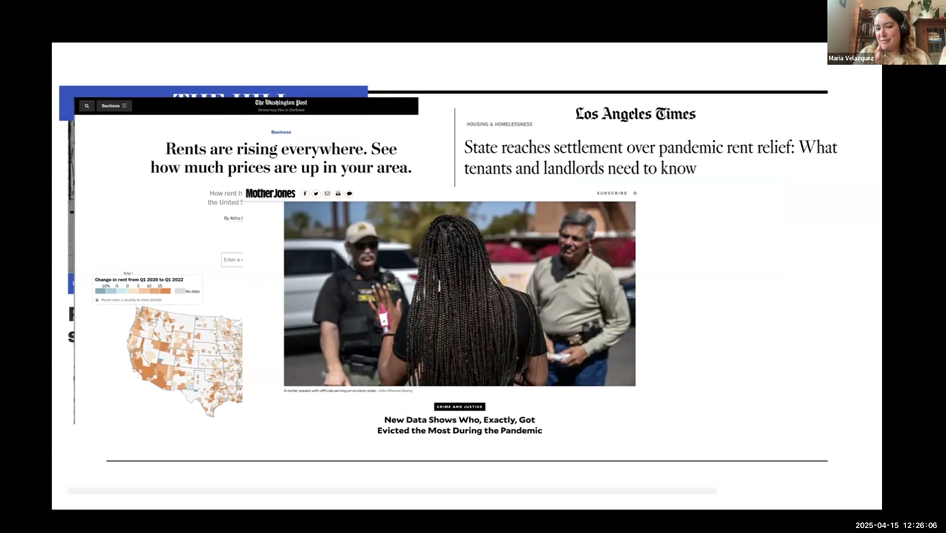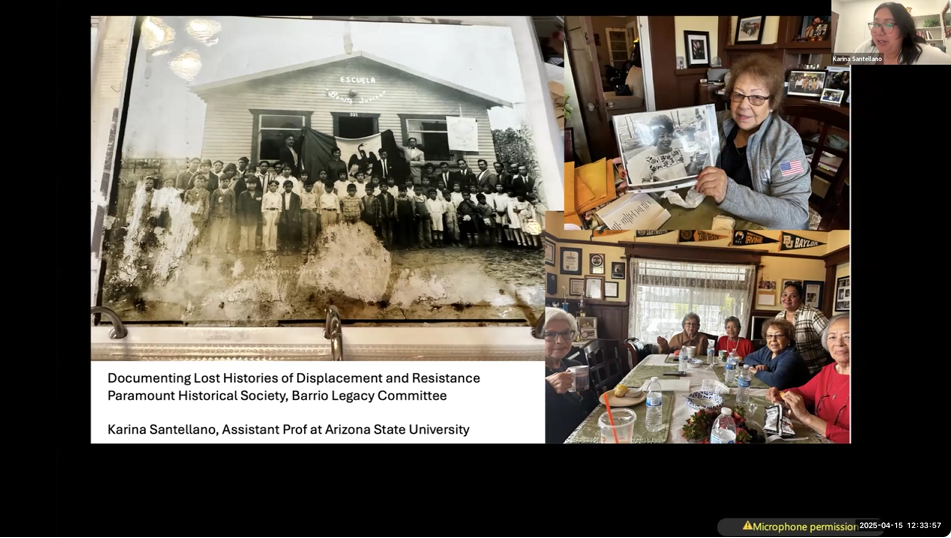
Spotlight on the 2025 ERI Community Engaged Research Symposium
In 2023, the USC Equity Research Institute (ERI) was awarded a three-year grant from The California Endowment to strengthen California’s network of community-engaged researchers. The goal was to build a statewide ecosystem of scholars equipped to produce data and narratives that support community power and power-building efforts.
Through a competitive process, ERI selected two cohorts in 2023 and 2024 based on the rigor of their research, their deep commitment to working in partnership with community organizations, and advancing social justice movements. Some projects have already reached completion, while others are still underway.
Each grantee was invited to share a brief (5-minute) presentation summarizing their project, key findings, and highlights or challenges they encountered in the field. Below is a snapshot of their inspiring work.
The Risk and Resilience Study: Assessing the Thermal Conditions of Alternative Housing Stock in Los Angeles
Hasibe Caballero-Gomez is a UCLA graduate student who worked with Pacoima Beautiful.

This study examined indoor temperatures, housing characteristics, and residents’ lived experiences among a sample of mobile home and ADU residents in the City of LA. It explored how residents manage extreme heat conditions within non-traditional housing. *ADU defined as attached and detached accessory dwelling units, including backhouses/rooms and garage homes.
Road to Black Jasmine
Essence Lynn Wilson was not in attendance but is a USC Annenberg doctoral student.
Using participatory animation, this project engages Black adolescents to co-create a short film titled Black Jasmine, focusing on the mental health crisis among Black youth. The project blends arts-based methods with community-engaged research to spark dialogue and inspire career pathways in animation and health advocacy.
Setting Policy and Research Agenda for the Health Concern of Per- and Polyfluoroalkyl Substances (PFAS) in Drinking Water through Community-Based Participatory Research Approach
Shiwen (Sherlock) Li is a USC Keck School of Medicine postdoctoral scholar and Dr. Max Aung is Assistant Professor of Population and Public Health Sciences at USC Keck School of Medicine.

This community-based participatory research initiative brought together residents, academics, healthcare professionals, and government agencies to raise awareness of PFAS contamination in drinking water and co-develop a policy and research agenda for mitigation strategies.
How does Black Los Angeles flourish in the anti-Black metropolis?
Demetrius Murphy is a USC Sociology doctoral student who worked with Destination Crenshaw.

This research explores how Black communities across economic lines experience and cultivate collective flourishing in Los Angeles County, despite structural barriers and systemic anti-Blackness.
Tenant Advocacy and Mobilizing in California: Examining Issues of Power and Precarity in Tenant Housing and the Possibilities of Tenant Mobilization in Shifting Relations of Power
Dr. Maria Velazquez is an IDEAL Provost Fellow at Stanford University Graduate School of Education, who worked with Worked with Tenants Together.

Although still in progress, this project focuses on the experiences of tenants advocating for better living conditions and stronger protections. It investigates how tenant mobilization can shift power dynamics within California’s rental housing market.
Documenting Lost Histories of Displacement and Resistance for Community Power Building in Paramount, California
Dr. Karina Santellano is Assistant Professor of Sociology at the T. Denny Sanford School of Social and Family Dynamics at Arizona State University, who worked with the City of Paramount.

This ongoing study uncovers the histories of Latino/x/e residents displaced by 1970s redevelopment in Paramount, CA, and connects those experiences to present-day redevelopment efforts and community resistance strategies.
Clean Air Coalition of North Whittier and Avocado Heights
Dr, David C. Banuelas is a USC Presidential Sustainability Fellow, who worked with Nature for All, Avocado Heights Vaquer@s, USC’s Environmental Research Justice Lab, and Orange County Environmental Justice (OCEJ).

This project measures lead levels in local water sources and investigates the role of riparian forests in reducing lead concentrations—collaborating with community groups to support environmental health and justice.
Sacrifice Zone: Los Angeles
Paula Cizmar is Professor of Theatre Practice in Dramatic Writing at the USC School of Dramatic Arts and Michael Brodie is an Associate Professor at the USC School for Cinematic Arts.

This is an exhibit-based, media-rich, immersive performance designed to uplift local environmental justice activists’ campaigns to mitigate the adverse effects of ‘sacrifice zones’—the places in a city (most often Black and Brown, working-class neighborhoods) devastated by systemic environmental racism tied to oil drilling and refining, diesel pollution at the ports and along the I-710 corridor, and other industrial toxins.
Stay tuned for more in-depth features on these projects in future ERI blog posts.
For more information, or to connect with any of the researchers, feel free to reach out to us at [email protected].